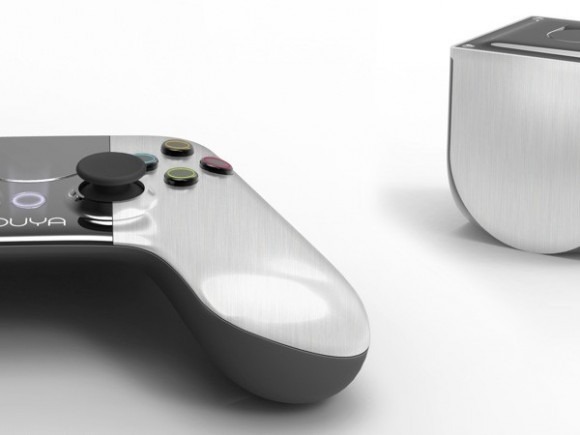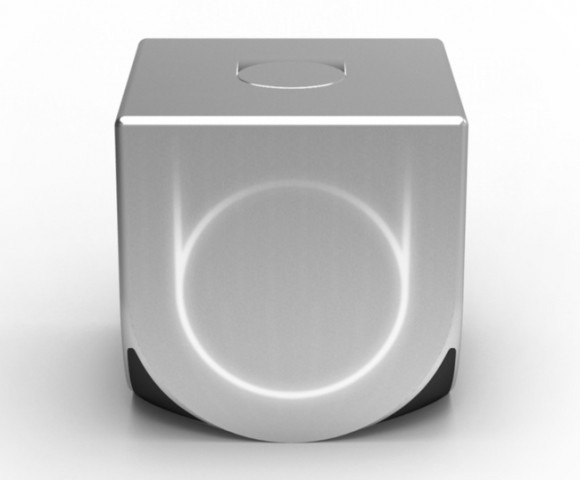With $3m Ouya's problems are just starting
Kickstarter has its latest king, and the Ouya Android console has found itself at the eye of a perfect storm of geek-appeal. Satisfying the retro lusts of console gamers with the open-source idealism of Android aficionados, all wrapped up in a minimal casing the designer cred of which should satisfy all but the most staunch of minimalists, Ouya has unsurprisingly blasted past the $3m mark and, with 28 days left to run, could well become the next poster-child of crowdsourced funding. Make no mistake, though; if previous Kickstarter heroes like Twine and Pebble thought they had problems, Ouya faces a nightmare along with all that cash.
If you've been buried beneath a WiFi-shielding rock for the past few days, here's the recap. Ouya arrived on Kickstarter looking for $950,000 to create the perfect 21st Century console. Android-based, running NVIDIA's capable Tegra 3 quadcore processor, and with a list of hack-friendly credentials, the coup de grâce was the compact Yves Behar design which suddenly made mainstream consoles look bloated and ugly. In contrast, Ouyo looks expensive and "premium", all the more surprising when the eponymous team responsible for it said the target price was just $99.
Cue frenzy. Within the space of around seven hours the initial goal had been met. The $2m pledge mark was passed in less than 24hrs and now, only a few hours later again, Ouya is beyond $3m and shows little sign of slowing. The team has had to dramatically increase the number of consoles on offer, boosting the $99 tier to 80,000 units (of which, at time of writing, a quarter have been taken).
[aquote]Thus begins the headache[/aquote]
Thus begins the headache. Ouya sensibly gave itself plenty of time to translate money into product, and the first consoles aren't expected to ship until March next year. That also leaves plenty of time for arguments over what, exactly, Ouya will and won't do to flourish. The comments section over at the Kickstarter page is already seeing pulls in different directions, with some demanding more agile hardware, others wanting a device that mimics a Google TV or even a full Android computer, concerns that the top-tier of games will be too much for it, or that Ouya is already behind when it comes to cloud gaming or emulation.
Twine and Pebble were broad in their scope, certainly, but nowhere near as flexible as Ouya could be. That's a blessing and a curse when you're trying to concentrate on getting hardware out of the door as a start-up.

Nintendo, Sony and Microsoft are, with their respective consoles, the obvious targets. None of the three has done particularly well in pushing "mini games" or challenging the casual gaming market in the same way as we've seen flourish on smartphones and tablets. Sony has only really begun to explore PlayStation Certification for mobile devices, while Microsoft's few forays into Xbox LIVE-connected games on Windows Phone are limited not least by the comparatively small audience of actual Windows Phone users. Nintendo, meanwhile, resolutely refuses to license much-loved (and thus inevitably popular) classic titles like Super Mario for iOS or Android.
What all three companies know, though, is that being a player in the mainstream gaming market is hugely expensive. $3m, though impressive for a Kickstarter campaign, is a drop in the proverbial ocean for a console. That's before you take into account the presumably tight margins involved when you're selling your fancy box for $99 rather than double or triple that.
Ouya is yet to reveal exactly how much it expects to make in profit on each sale, but a topical comparison is Google's Nexus 7 tablet. That, IHS iSuppli suggested today, costs around $152 in materials, with Google charging $199 street price. Obviously the console lacks a display, touchscreen and battery, so we can knock $75 off that BOM from the start, though the quality casing (versus the Nexus tablet's plastic) and wireless controller will add their own costs.
[aquote]Ouya can't afford not to keep track of Android OS updates[/aquote]
Ouya and the Nexus 7 face another similarity: software updates. Android has a well-established reputation for fragmentation, something that has driven a cottage industry of ROM-tinkerers flourish around phones and tablets running the OS. In comparison, the traditional console market is stagnant, both in software and hardware; the Xbox 360 is relatively little changed since when it first went on sale in 2005, for instance, and Microsoft have suggested that it won't see a replacement until 2015. A ten year product cycle in mobile devices is unheard of.

What the Ouya team can't afford to do, however, is mimic that slower pace: they need to keep track of OS updates. As we've seen on Android phones, apps intended for the more recent versions often won't play nicely with the older versions; unless Ouya expects developers to code special titles solely for the console – which undermines part of the reason for picking the widely-adopted Android in the first place – it will need to maintain pace with the rest of the market. That's something big OEMs like Samsung, HTC and Motorola struggle with at the best of times, never mind a niche console manufacturer.
Long before the "#firstworldproblems" meme, my mother used to have a similar saying. If she caught me agonizing over an ostensibly pleasant problem – how to pick between two toys at the store, for instance – she'd remind me that "it's a nice problem to have." The message, of course, is that there are worse situations to be in than having to decide how to spend $3m+. Ouya's celebrations could well be short-lived: promises are cheap, but building a successful business in a cut-throat segment is very, very difficult.
